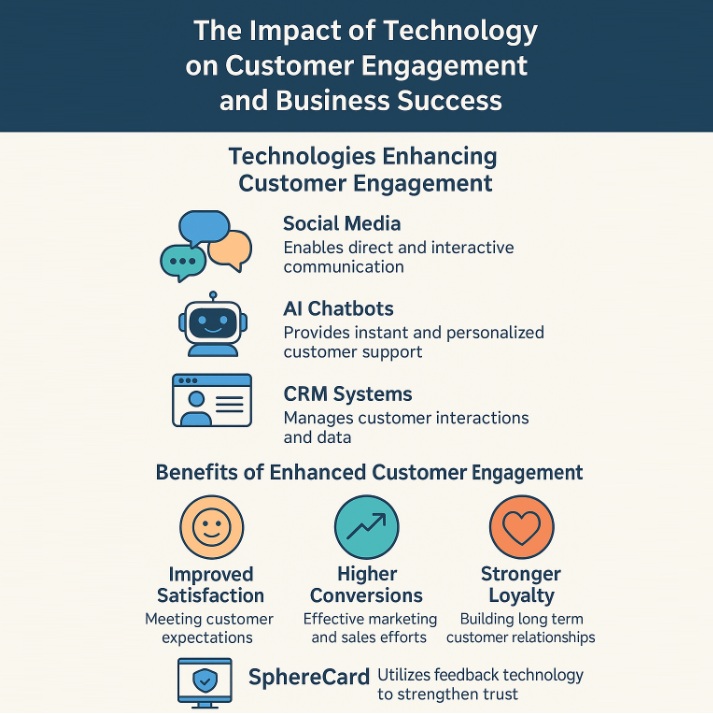DigTechnology shapes the way companies connect with customers. In today’s digital-first world, the impact of technology on customer engagement is undeniable. Businesses that adapt to tech-driven interactions build stronger relationships, increase loyalty, and gain a competitive edge in the market.
The Evolution and Impact of Technology on Customer Engagement
From face-to-face meetings and phone calls to emails, mobile apps, and AI chatbots — technology has transformed customer engagement. Businesses can now provide instant responses, personalized offers, and targeted communication at scale, making customer interactions faster, smarter, and more meaningful.
Key Technologies Influencing Customer Engagement
1. Social Media for Real-Time Interaction
Platforms like Instagram, Facebook, and LinkedIn allow brands to engage directly with customers through polls, live streams, and comments — keeping conversations active and relevant.
Case Study:
A local clothing boutique uses Instagram Live to showcase new arrivals every Friday. Viewers can comment, ask questions, and place orders instantly, increasing weekly sales by 25%.
2. AI Chatbots and Automation
Artificial intelligence enables 24/7 support, quick resolutions, and consistent communication — a major driver of business success. Chatbots can handle FAQs, process orders, and escalate complex issues to human agents.
Case Study:
An online electronics store integrated an AI chatbot to assist with troubleshooting. Customer wait times dropped from hours to seconds, and customer satisfaction ratings improved by 40%.
3. CRM Systems for Relationship Tracking
CRM tools track customer behavior, purchase history, and preferences, making engagement more personal and effective. Businesses can send targeted offers, remember past interactions, and anticipate future needs.
Case Study:
A fitness studio uses its CRM to send class reminders and personalized birthday discounts. As a result, membership renewals increased by 15% year-over-year.
The Link Between Technology, Engagement, and Business Success
Effective use of technology improves customer satisfaction, drives conversions, and builds loyalty. Brands gain valuable insights into customer needs, allowing them to adapt quickly and stay ahead of competitors. The data collected from these engagements feeds directly into strategic decision-making, making every interaction an opportunity for growth.
SphereCard: Technology in Action
SphereCard leverages customer feedback technology to strengthen engagement. Its rating system allows customers to leave compliments or complaints, ensuring quick resolutions and enhancing trust. Vendors who respond promptly maintain their VeriSatisfied Badge, while unresolved issues prompt action before reputations suffer. This is a direct example of the impact of technology on customer engagement leading to lasting business success.
Conclusion
The impact of technology on customer engagement is clear: faster service, deeper connections, and stronger loyalty. Businesses that embrace these tools position themselves for sustained success in an increasingly competitive marketplace.

